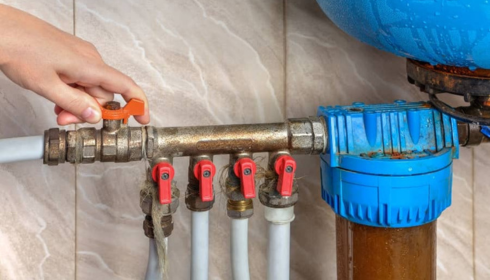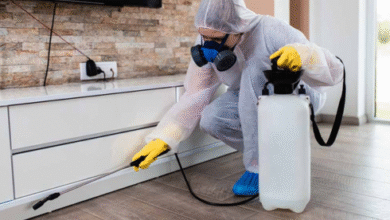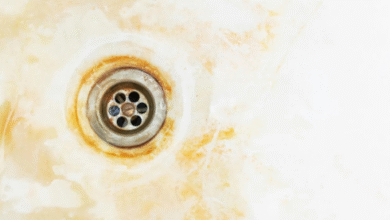Rust in Your Water? Here’s How Kingston Homes Are Getting Cleaner, Clearer Taps

It usually starts small. You notice a faint yellow tinge in your glass. Then maybe the sink starts to stain, the washing machine leaves odd marks on your whites, and your morning cup of tea tastes just… wrong. If you’re living in Kingston, WA and relying on well water or even some municipal systems, chances are you’re running into an old but stubborn enemy: iron.
Iron in water isn’t dangerous in the same way as some other contaminants, but it sure is annoying—and it sticks around, literally and figuratively. If you’re tired of rust stains, metallic taste, or explaining to guests why your water looks like it’s had a bad day, you’re not alone. The good news? There’s a Kingston water iron fix for that—and it doesn’t have to be overly complicated or budget-breaking.
Let’s break it down in plain terms, and maybe save you some stress (and stained towels) along the way.
Why Is There Iron in Your Water in the First Place?
Iron is one of the most common elements on earth—so it’s not shocking that it shows up in your water. In fact, in places like Kingston, where many homes use private wells or older plumbing, iron sneaks in pretty easily. It could be coming from the soil, from corroded pipes, or from groundwater that’s picked up a hefty mineral load on its way to your kitchen.
There are two main types of iron in water: ferrous (dissolved and invisible until oxidized) and ferric (oxidized and visibly rusty). Some unlucky folks get both.
Either way, it causes all the usual suspects:
- Reddish-orange stains on fixtures and tubs
- Laundry disasters
- Clogged faucets and showerheads
- Metallic taste and odor
- And maybe even a water heater that’s working harder than it should
It’s like hard water’s grumpy cousin. And it doesn’t just go away with time—you’ve got to tackle it head-on.
What You Shouldn’t Do
Let’s start here, because a lot of folks try DIY fixes before calling in the pros.
No, a standard pitcher filter isn’t going to cut it. Those are great for chlorine or minor sediment, but iron? That’s a bigger beast. Same goes for tap attachments and basic carbon filters—they’re not built for this type of issue and will clog up fast.
And trying to bleach or flush your pipes might offer a temporary improvement, but it’s not a long-term solution. In some cases, it can even make things worse.
What Actually Works: Iron Filtration That Fits
To get rid of iron properly, you need a dedicated iron filtration setup—something that’s specifically designed to remove both dissolved and oxidized iron before it enters your household plumbing.
There are several types of filters that get the job done:
- Oxidizing filters: These use air, chlorine, or potassium permanganate to oxidize the iron, then trap it with a filter media like greensand or Birm.
- Air injection systems: These inject air into the water to oxidize ferrous iron and remove it using backwashing filters.
- Water softeners with iron removal: Some softeners are built to tackle small amounts of iron alongside hardness.
- Multistage systems: If your water has iron plus other contaminants, a layered approach (like sediment prefilters, oxidizers, and carbon polishing filters) might be ideal.
The key is customization. Every home’s water is different, and that’s why cookie-cutter systems usually don’t work well. You need a pro who’ll actually test your water and recommend a setup that targets your iron levels, water pressure, and plumbing layout.
Don’t Go It Alone—Call the Local Experts
If you’re reading this from Kingston or anywhere around Kitsap County, there’s a real advantage to working with local water professionals. They know the quirks of the region’s water profiles, from shallow wells to deeper groundwater sources. They’ve seen all kinds of rust-related issues and know which products and filters hold up in local conditions.
The right installer won’t just sell you a system. They’ll walk you through a water test, help you understand the results, and size the filter correctly—because an oversized or undersized system won’t do you any favors.
And maintenance? Yeah, they’ll explain that part too. Some filters are self-cleaning, some need media replacement every few years, but the upkeep is usually minimal compared to the peace of mind (and clean fixtures) you get in return.
From Rusty to Refreshing: What Changes After Installation?
Short answer? Everything.
You’ll notice clearer water, less staining, and better-tasting drinks almost immediately. Your appliances will last longer. Your laundry won’t betray you. You’ll stop buying weird stain removers and stop apologizing for the color of your water.
Even the tiniest moment—like watching ice cubes freeze crystal-clear—becomes satisfying. No more side-eyeing your water. It just feels right.
If you’re tired of swirling rust in your glass or reddish rings around your sink, it’s time for action. The right Kingston water iron fix, iron filtration setup, rusty tap water filter WA providers can transform your daily life in ways you probably haven’t even considered yet.
Don’t wait for the stains to set in—or for your appliances to give up. Water is a basic comfort. Let’s make sure yours feels that way again.



